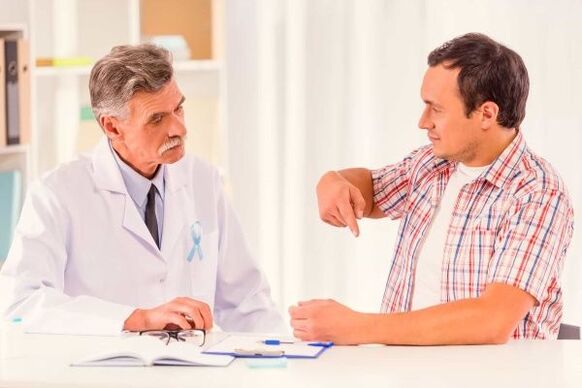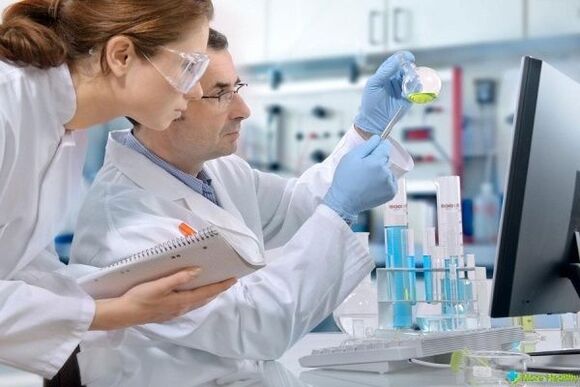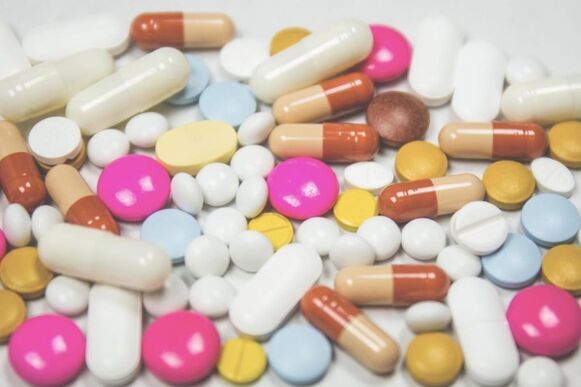Bacterial prostatitis is understood as an inflammatory process in the prostate tissue, which can occur in acute or chronic form. The disease manifests as severe pain in the groin area, fever, signs of poisoning, and requires close attention by medical personnel.

We'll tell you what causes prostatitis, how it manifests, and how to treat it.
Why does bacterial prostatitis occur?
According to research institutes, bacterial prostatitis affects sexually active men aged 25-50. The reason is that pathogenic bacteria enter the urogenital system through the urethral opening.
Most often, the following types of pathogens are found in the prostate:
- staphylococcus;
- Pseudomonas aeruginosa or Escherichia coli;
- Enterococcus.
These creatures are considered opportunistic. They often inhabit human skin and mucous membranes and can only cause inflammation under certain conditions. According to the urologist's observation, the cause of the disease is most likely to be:
- Disregard personal hygiene rules.
- Male enthusiasm for anal sex (acute bacterial prostatitis is caused by E. coli living in the rectum of a potential partner in 80% of cases).
- Incorrect or too frequent catheterization.
- Infection infiltrates from the bladder, urethra, or testes.
- Certain diseases (including AIDS and diabetes).
- Violation of urine flow.
- Sexually Transmitted Infections.
Under the influence of microbial life activities, the consistency of prostate secretion is destroyed. In the organ, the stasis process begins, becoming the cause of unpleasant symptoms. In addition, this condition can cause extensive inflammatory processes, enlarged prostate, and other diseases.

main symptoms of the disease
Bacterial prostatitis usually has an acute course, as symptoms in men start unexpectedly, develop rapidly and have multiple manifestations. Depending on the type of pathogen, the age of the pathological process, and the state of the immune system, men may complain of the following:
- Body temperature rose as high as 39 degrees, fever and chills.
- Severe pain in the groin or lower abdomen. It can be given to the scrotum, hip joint, and anus.
- Frequent urination, especially at night. Almost always, men will notice the burning sensation of the glans. Acute urinary retention may begin as the disease progresses or the adenoma develops.
- Pain in the anal area, usually constipation.
- Flu-like symptoms - muscle and joint pain, general weakness.
If bacterial prostatitis is caused by a sexually transmitted infection, there may be a discharge from the penis of a different color, most commonly with an unpleasant odor. In this case, perhaps we are talking about urethral prostatitis.
The intensity of symptoms depends largely on the stage of the inflammatory process. So with the substantial form, the temperature can go up to 40 degrees and the pain can become paroxysmal, and painkillers may not help.
Methods of Diagnosing Diseases
Doctors make an initial diagnosis based on a man's chief complaint and medical history data - information about lifestyle, existing chronic diseases, date and circumstances of first symptoms. To determine the type of pathogen, the patient was sent to the urine transfer site for bacteriological analysis. If it is a chronic disease, the secretion of the prostate can be collected for research.
The following types of laboratory diagnosis can also be used:
- PCR studies;
- General and biochemical blood tests;
- Blood test for PSA.
In the acute form, rectal palpation of the prostate is not performed. If there is no fever and the man is not bothered by severe pain, the doctor can feel the prostate with a finger through the rectal wall to determine its approximate size, shape, and consistency.

Diagnosis is confirmed or denied by the results of TRUS. This is an ultrasound scan in which a transducer is inserted into the patient's rectum. As a result, they clearly understood the changes in the organ tissue, the localization of the inflammatory process. To rule out cancer, they can send an MRI or CT scan and, in particularly suspicious cases, a prostate biopsy.
How to Treat Bacterial Prostatitis
It is impossible to cure bacterial prostatitis without antibiotics. Folk remedies only have short-term effects, pathogens remain in the body and can cause various complications. Also, there is no best antibiotic, and men should keep that in mind. The choice of drug depends on the type of pathogen, and the workings of the patient's organs and systems.
Antibiotics can be taken for up to two months under standard treatment regimens. However, the exact dose, duration of treatment and frequency of administration are selected individually, taking into account various indicators of health status.
In addition to antibiotic treatment, doctors also offer intensive treatment. For this purpose, vitamin and mineral complexes are prescribed, non-steroidal anti-inflammatory drugs of choice and, in some cases, immunomodulators are prescribed. Antipyretics and pain relievers are also prescribed. If you have difficulty urinating due to bacterial prostatitis, your doctor may place a urinary catheter.
Throughout the course you will need to observe bed rest and take care of your stress and anxiety.
Using Suppositories to Treat Bacterial Prostatitis
To combat prostatitis locally, various rectal suppositories can be prescribed. They do not cure bacterial prostatitis, but they provide significant relief to patients.
In most cases, urologists will prescribe the following:
- Suppositories containing papaverine - relieve pain and improve blood microcirculation;
- Propolis candles - improve the function of the immune system, eliminate edema, help relieve pain;
There is no information on the effectiveness of magnetic candles containing barium ferrite. In traditional medicine, this treatment is not actually used.
Prostate massage and any warm-up-based activities are contraindicated in acute bacterial prostatitis.
If the correct treatment strategy is chosen and the man does not heal himself, the prognosis is good. Otherwise, the transformation of the disease to a chronic form or the development of certain diseases is possible.

what complications may arise
Complications of bacterial prostatitis can occur if a person does not consult a doctor or provides substandard help for an extended period of time. The consequences were varied, down to sepsis and death.
Most often, against the background of untreated diseases, the following diseases occur:
- pyelonephritis;
- Cystitis;
- Prostate abscess.
In some cases, erectile dysfunction or infertility may occur. To prevent adverse outcomes, men with bacterial prostatitis should be treated in an inpatient unit.
Sexual and bacterial prostatitis
The likelihood of having sex with this form of prostate inflammation depends on the pathogen causing the pathology and at what stage it is. Intimate communication is prohibited if the pathogen is an STI.
In the acute phase, men do not have time to enjoy sex. Unbearable pain, urination disturbance, and fever are often accompanied by poor erection due to loss of libido. In the chronic form, intimate life is possible, but after using barrier contraception and consulting a doctor.
Bacterial prostatitis can be dangerous for a woman -- she's at risk of contracting an STD. A patient must remember this.
in conclusion
Chronic bacterial prostatitis was curable, and the man sought medical attention promptly, independent of questionable methods, pills, and prescriptions. The chronic form is more difficult to respond to the effects of treatment, so clinical examination is required to control the health condition.






























